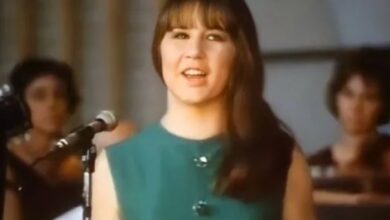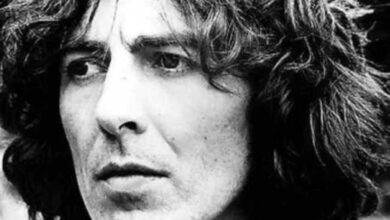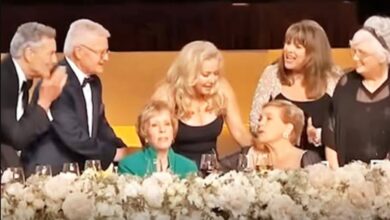Ozzy, Kelly, and Jack Osbourne Overcome With Emotion During Choir’s Haunting Rendition of Black Sabbath’s “Changes”
The death of Ozzy Osbourne has drawn fans back to memories that highlight not only his legacy as a performer but also his softer, more vulnerable side. Among the most shared clips is one featuring Jack and Kelly Osbourne, capturing a moment where the family walked quietly into a chapel to hear the St. Louis Women’s Choir sing a stunning interpretation of a Black Sabbath ballad that forever changed the way people saw him.
This footage, which has accumulated more than 400,000 views across numerous YouTube channels, has been called “heartbreaking and beautiful” by those who have watched it. In contrast to the image of the wild rock frontman who shocked audiences with his antics, the video highlights a man stripped of theatrics, moved only by music and family. For many, it became an introduction to Ozzy’s deeply human, fatherly side.
The scene was filmed in 2018 during the production of the travel series “Ozzy & Jack’s World Detour.” As the quiet piano introduction of “Changes” filled the space, the Osbournes slipped into the front pews. Ozzy, recognizing the opening instantly, let out a gentle “Aww,” a sound of warmth and tenderness that contrasted powerfully with the hardened “Prince of Darkness” persona the world had come to know.
From the moment the choir’s voices rose, emotions overtook the family. Kelly tried to keep her composure, but the sound moved her to tears. Her father, equally affected, placed a comforting arm around her shoulders, showing not the image of a legendary metal singer but that of a caring parent sharing in the intensity of the music. It was a window into family love expressed through melody.
What made this performance even more striking was its history. “Changes” had originally been recorded by Black Sabbath in 1972, and decades later, Ozzy revisited it with Kelly for a 2003 duet. That father–daughter collaboration soared to #1 in the UK, making it a defining moment in their shared journey. After Ozzy’s passing, the song resurfaced in the charts, a testament to its timeless weight and their enduring connection through music.
Kelly reinforced that emotional link in the days following her father’s death. In her first public tribute, she quoted the opening lines of the song: “I feel unhappy, I am so sad. I lost the best friend I ever had.” Those words, already melancholic, took on a new level of intensity as they now represented her grief while also symbolizing decades of love between her and her father. For fans, it was heartbreaking yet fitting.
Both Ozzy and Kelly later admitted to being completely overtaken by the performance. Kelly described the piece as embodying their relationship and the love that defined it. Ozzy himself said that hearing the choir felt like being surrounded by “a room full of angels.” Their reactions turned what was already a poignant moment into something that carried profound symbolic meaning for both their bond and his legacy.
The reaction online reflected the same sentiments. Fans commented not only on the haunting harmonies of the choir but also on Ozzy’s tenderness. One wrote, “Everyone knows him as the ‘Prince of Darkness,’ but here you see the man who loved his family above all.” That reminder cut through the myth, showing a different side to a man who was more than just a stage persona. It was real, it was unguarded, and it resonated deeply.
Another widely shared observation focused on his pure love of music. A fan remarked, “Ozzy loved music. It didn’t matter what form it came in, you can see that here.” In that chapel, with a choir reshaping one of his most emotional songs, Ozzy’s devotion to music itself was laid bare. For him, whether it was heavy riffs, angelic chorals, or a duet with his daughter, it was always about the bond music created.
This chapel performance remains a defining glimpse into Ozzy Osbourne’s humanity. It showed that behind the theatrics, the wild tales, and the iconic stage persona was a man who could be deeply touched by love and sound. As the clip continues to circulate, it preserves not just a musical moment, but a personal one, where Ozzy’s humanity and his role as a father shone as brightly as his contributions to rock history.





